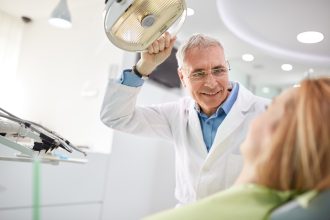Acne is a skin condition with great psychological and social implications. It takes a toll on the mental health of a person. The deeper the acne scars, the more one feels underconfident and conscious.
Safe and effective deep acne scar treatment starts with a comprehensive consultation. This consultation helps a dermatologist to assess your skin and carefully examine your scars. There are also some basic questions that a dermatologist asks you about your skin.
But before you undergo such a treatment, there are certain things that you should ask yourself before your scheduled appointment. Questions like why exactly do I want my scars to be treated and how I want to look post-treatment will help you analyze the impact of acne scars on yourself.
Treatment for Acne Scars
After you zero in on the treatment option, your dermatologist will form a customized plan for you. Your dermatologist will consider factors like scar type and their location on your body.
Sometimes, to increase its efficacy, the dermatologist may suggest you undertake more than one treatment. For instance, if you have a boxcar scar, which is a type of scar that resembles a large pore, your dermatologist will advise you to undergo laser therapy and a kind of acne scar surgery known as subcision.
Treatment for Depressed Acne Scars
- Acne scar surgery – This minor surgery comes under acne scar treatmentfor treating noticeable scars. This surgery aims to make them less noticeable.
- Resurfacing procedures – It is used for reducing the appearance of acne scarring. Resurfacing removes skin layers and enables the body to generate new skin cells.
- Fillers – They are used to safely plump acne scars. The scars are filled with collagen. This treatment gives a temporary result.
Treatment for Raised Acne Scars
- Injections – In this treatment, the medicine is injected directly into your scars. This treatment aims to flatten raised scars. These injections are administered once in a couple of weeks
- Acne scar surgery – This surgery is performed to minimize the appearance of raised acne scars. It is usually succeeded by injections of corticosteroids, interferon, or 5-FU. The surgery can also be followed by radiation.
- Laser therapy – This acne scar treatmentuses a pulsed dye laser to minimize the itch and pain, reduce color, and flatten a scar that is raised.
- Cryosurgery – This surgery for acne scars freezes the scar tissue. It leads the tissue to die and eventually fall off. To get the best result from cryosurgery, your dermatologist may recommend several cryotherapy sessions and corticosteroid injections.
- Topic scar gels, creams, and silicon dressings – All these treatments can be availed without the need for a prescription. They can be used at home for the treatment of scars that are raised. Such topical treatments minimize the discomfort and itching and work to flatten, shrink, and fade the raised scars.
What Outcomes Can You Expect with Scar Treatment?
You will find the treatment minimizing the visibility and size of your scars. With time, treated scars will fade, and it will be tough for you to notice them.
Keep in mind that the results you will achieve will depend entirely on the expertise of the treatment center. So, you need to get your scars treated from a facility that consists of skilled dermatologists and dermatologic surgeons.















